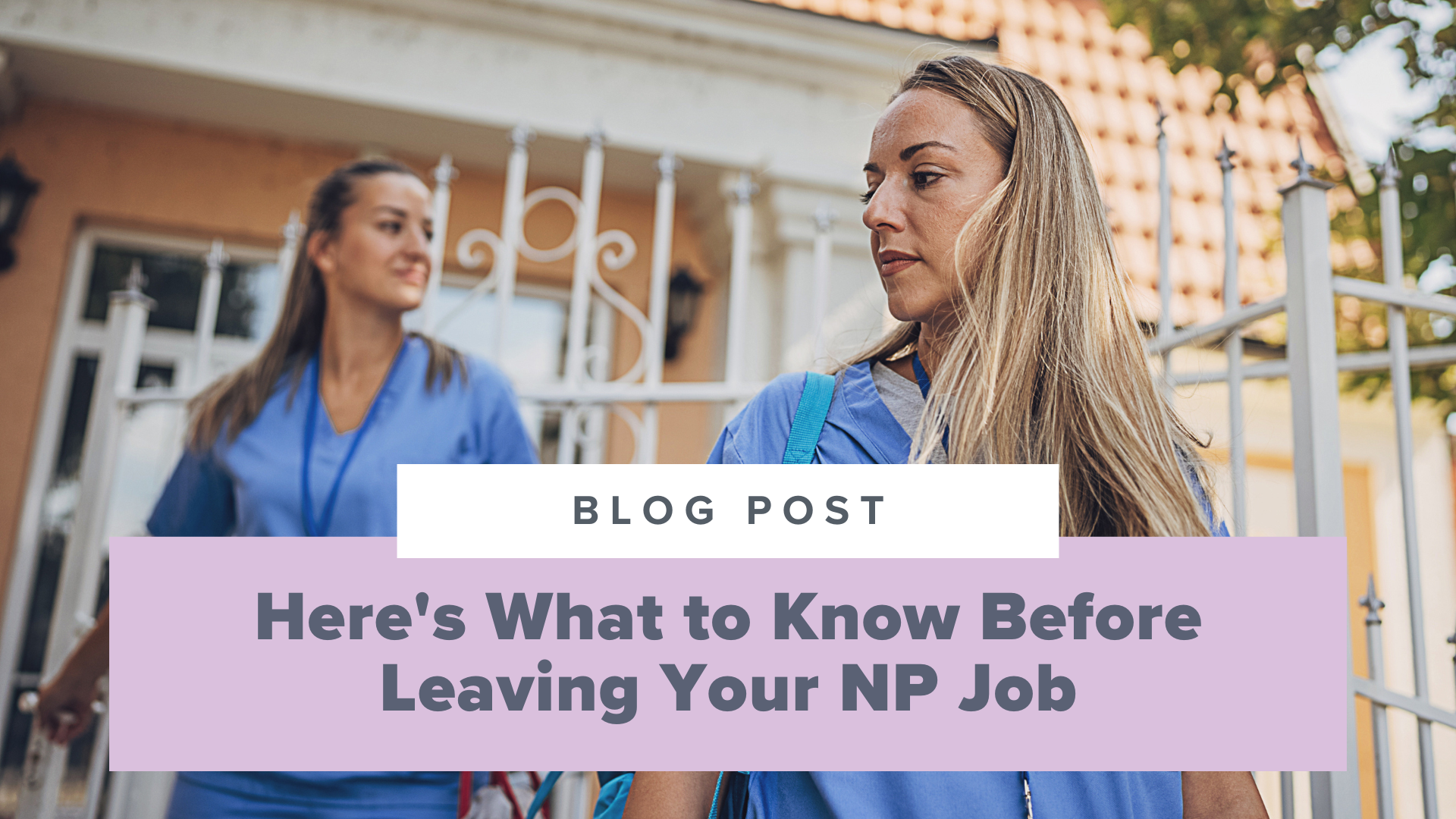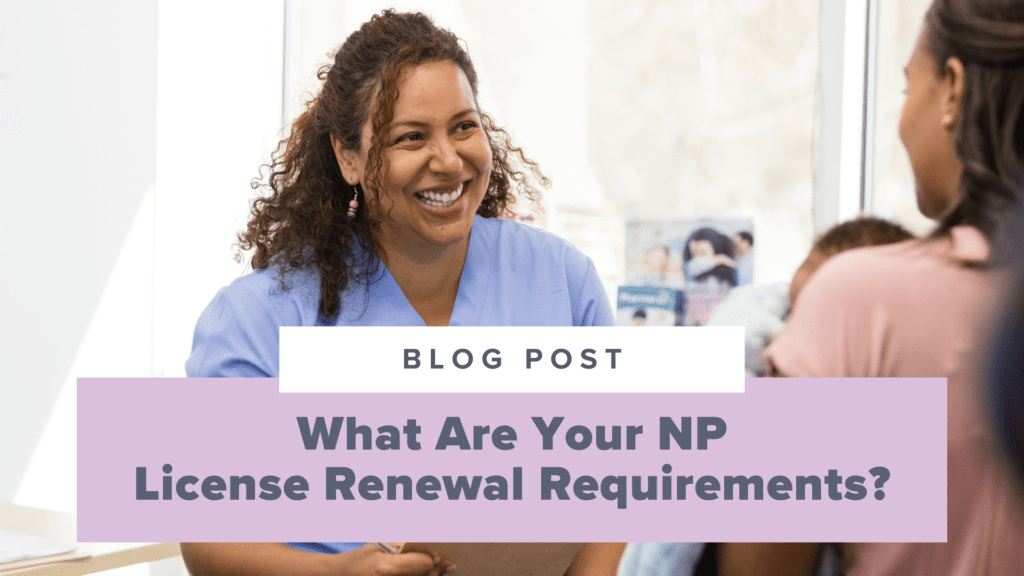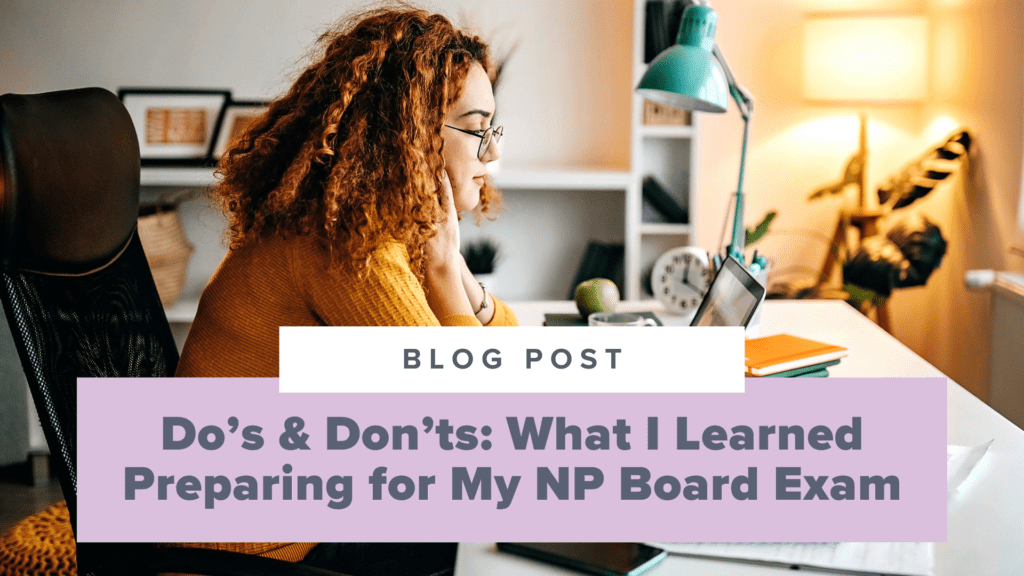Here’s What to Know Before Leaving Your NP Job (Interview with Anna Miller)
- by
- Mar 29, 2024
- Articles

Today, let’s talk about an important issue for nurse practitioners (NPs): what do you do if you want to leave your NP job, and how do you know if you’re making the right choice?
In this post, I sat down with Anna Miller from SMNP Reviews to talk about the factors that impact NP job retention and gave some solid advice on deciding whether to stick with your NP role or look elsewhere. Join me as we dig into NP retention rates and the know-how to make smart career moves.
Let’s dive into the interview!
All About NP Retention Rates
Hannah:
Hey Anna! So, following up on our last post about what to expect in your first NP job, we touched a bit on how it’s important to have realistic expectations about what working as an NP is really like. However, I’m noticing a trend that more NPs are leaving their roles and finding new positions than in previous years.
Have you noticed any recent trends when it comes to retention rates with NPs? And specifically, are there any specialties that have a higher turnover rate than others?
Anna:
I’d say across NPs—and really probably advanced practice providers as a whole—retention rates are kind of low. I read something recently that said before COVID, the turnover rate was already at 10%, but after COVID it’s up to 15% annually. It’s wild!
There’s varying data and varying sources out there on this, but I know most about primary care, since that’s what I’m certified in. Areas that have higher stress—like emergency medicine or critical care—typically experience higher turnover rates as a whole, but I think there’s a lot more that goes into it than just stress.
Why Are More NPs Leaving Their Jobs?
Hannah:
Gotcha. So do you think the change in the retention rates has more to do with the jobs themselves, like people aren’t satisfied with their salary or their employer? Is it more of a systemic issue within the field as a whole, or expectations about what to actually expect as an NP?
Anna:
I honestly think it’s a mix of all of it. Like what support systems are in place, the pay, what is the workplace culture like? Burnout is a really big thing, especially for new NPs who face inadequate staffing and resources. And then I also think unrealistic expectations play into it. But all of those things can vary widely.
I mean, it’s definitely a big transition no matter what. Having a big transition is a normal part of becoming an advanced practice provider. But there are definitely some systems that lend better support. I’ve heard of so many new grads who are getting these offers, but they have little to no support as they transition into being NPs. And it’s hard to stay when you’re not being supported.
What Are Some Obstacles in Leaving Your NP Job?
Hannah:
Yeah, no doubt. So, if there’s an NP who does want to leave their role, what are some difficulties in leaving their role? Is there a long phase-out period?
Anna:
So, it definitely depends on your contract. I always recommend, please, please, please read through the contract and understand all of the implications. Because even if this job seems perfect, you might get in and realize there are some red flags that weren’t in the contract. I know some people that have gone to an awful job, but then in their contract it says they have to give a six-month notice or whatever it is, and so they’re kind of stuck for that six-month period.
I’ve also seen contracts with really strict non-compete agreements, which can make it hard to leave a job because it essentially says you can’t work in another clinic like that within however many miles for however many years. So if your passion is say women’s health, and your contract says you can’t work in a women’s health clinic within a 50-mile radius for the next three years…you’re kind of stuck if you leave that job.
I think a lot of times, too, it’s more just a mental roadblock. They feel like, “I’ve spent all this time, all this money going to NP school, and now I wonder, did I waste my time? What did I do?”
I think people don’t realize how many opportunities are out there for NPs and nurses as a whole. There’s areas with more support. There’s so many different types of clinics. There’s so many different types of specialties. There’s school clinics, right? There’s primary care, or whatever interests them. And there’s nonclinical NP jobs, which are also awesome. I may be a little biased here, but they can also do teaching or research. There are so many opportunities out there!
What to Consider Before Leaving Your NP Job
Hannah:
For sure! And I guess sort of in the same vein, if you want to leave your job, before actually making that leap, what are some questions to ask yourself before putting in your notice?
Anna:
Absolutely look into what is required of you in your contract. Is there money you have to pay back? Was there a sign-on bonus? A non-compete agreement? How much notice do you have to give? Anything like that.
But then, I think it’s also worth asking yourself what you’re going to look for when you leave. What type of workplace are you looking for? What type of shift do you want? What work-life balance do you want?
Some NPs I know get into a clinic that’s Monday through Friday, 9-to-5, and think that’s going to be great. But then they miss working three 12-hour shifts. So, I think they need to know what they’re truly looking for and what resources and support they need. Because one, maybe they can ask for that at their current job before they leave. Or two, they just know the types of questions to ask as they’re seeking new employment, just to set themselves up for success and actually stay at a new job.
What Are Some Resources for Job Hunting?
Hannah:
Yeah, that’s great to know. So for the last question, what are some resources for NPs who may be considering a new position?
Anna:
Yeah, we have a job hunt course that goes over not only the mindset and the expectations, but some of those red flags versus green flags in job offers and contracts so you can go in with some understanding, because sometimes you just don’t know.
We also talk about how important networking is. Connect with anybody you know, even your hairdresser! You never know who has a connection to someone, and so many jobs are obtained by networking alone. And I always also say look into future employers, look into the company, know what questions to ask in an interview, and stay fresh with the content if you’re having a gap. All of that is just gonna make you feel more confident when you walk in.
I also think having some type of community matters. You need some type of support from people who understand what you’re going through, like our Facebook group for new NPs is so important, because so many people in there are going to say yes, I feel that way too!
I know we have posts in there that are asking, “How long did you feel like you knew nothing?” And people will say that their first year was rough, but then it got better because they finally felt confident about a few things. Or, this is what really helped. Or hey, can you share whatever your smart phrase is for your documentation?
Just little things like that matter so much. It’s just so great to connect with others in your community. I think that can also really help with a transition.
Hannah:
Absolutely. Thanks for your time Anna!
Further Reading
Looking for more (free!) content to help you along your NP journey? Check out these other posts on the SMNP Reviews blog!
Search the Blog
Join our Facebook Group!
Get FREE support and encouragement from thousands of NP students and our NP Support team.
Learn More3 Study Hacks to Conquer Your NP Exam!
Download these tips that have helped thousands of students pass their NP board exams.
Download NowInstitutional Partnerships
Are you a faculty member and would like to bring Sarah Michelle’s resources to your school? Email us at nursinggroups@blueprintprep.com for special institutional pricing or click on the link below to learn more.
Learn MoreGroup Discounts
Are you a student and have 10 or more classmates interested in purchasing Sarah Michelle’s courses? Email us at nursinggroups@blueprintprep.com for special pricing.



